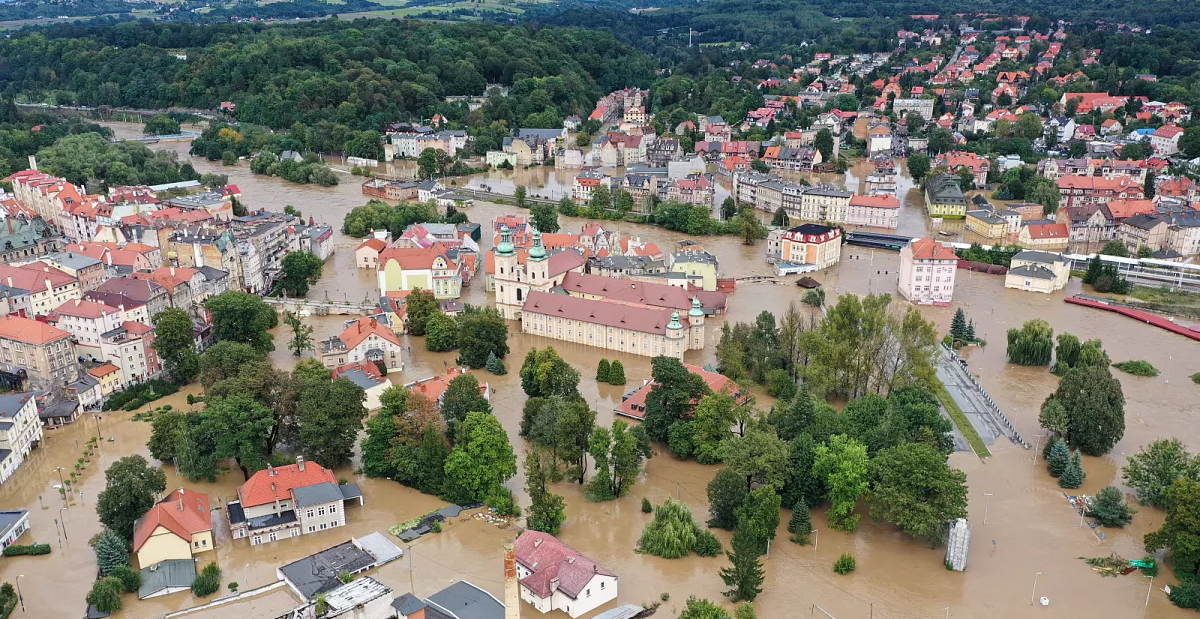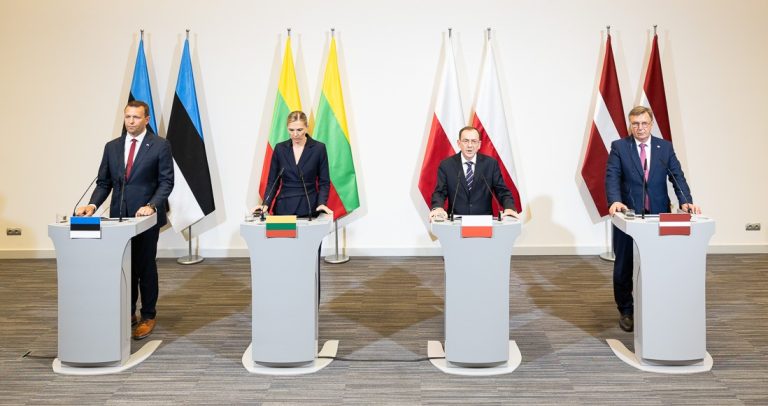Russian accounts spreading flood disinformation in Poland to sow panic, says government

Poland’s government says that Russian-linked social media accounts have been seeking to “cause panic” by spreading disinformation regarding ongoing floods that have caused death and devastation in the southwest of the country.
Speaking in parliament on Thursday in a special session devoted to the floods, Prime Minister Donald Tusk appealed to people, including politicians, not to share “fake news” such as exaggerated numbers of deaths and claims that the government was hiding the truth about the floods.
The prime minister noted that such disinformation was often linked to Russian accounts. But he also accused opposition politicians of then helping to spread false claims further, though without providing any examples of this.
💬 Premier @donaldtusk o dezinformacji ws. #powódź powielanej przez posłów PiS 👇 pic.twitter.com/w4IsBGuCKi
— PlatformaObywatelska (@Platforma_org) September 26, 2024
Subsequently, digital affairs minister Krzysztof Gawkowski presented further details to parliament.
“In the first four days of the flood, we recorded an increase in internet traffic in the scope of disinformation by 300%, primarily using the same IP addresses that were also used immediately after Russia attacked Ukraine,” said Gawkowski, quoted by news website Interia.
“The same groups are spreading disinformation in Poland…in a way intended to have one effect: to cause panic,” added the minister, who said that among false claims being spread were that “the government was doing nothing, that there would be no money [for victims], that embankments were being blown up”.
He said that this was not a new phenomenon and is part of what he has previously described as an ongoing “cold cyberwar” being waged against Poland by Russia and Belarus.
Sorry to interrupt your reading. The article continues below.
Notes from Poland is run by a small editorial team and published by an independent, non-profit foundation that is funded through donations from our readers. We cannot do what we do without your support.
Gawkowski, however, noted that the threat was not only coming from abroad. He said that two Poles, aged 28 and 25, had been detained on suspicion of “building an entire system for [spreading] disinformation” during the floods.
He said that, within the space of four days, they had bought dozens of computers and SIM cards before being arrested by the Polish police’s department for combatting cybercrime.
The minister gave examples of fake headlines spread by the pair: “They are dying and no one is helping them”, “A little girl fell into the surging river”, and “They will blow up the embankments. The government has such a plan”.
Gawkowski noted that his ministry has responded by strengthening its staff tackling disinformation and by establishing around-the-clock cooperation with digital platforms to tackle such content.
Prosecutors are fast-tracking cases against people caught looting during the ongoing floods in Poland.
Two people have also been detained for spreading disinformation, including one who dressed up as a soldier and claimed flood defences would be blown up https://t.co/ypW6MTGva5
— Notes from Poland 🇵🇱 (@notesfrompoland) September 19, 2024
Main image credit: UM Stary Sącz (under CC BY-NC-ND 3.0 PL)

Daniel Tilles is editor-in-chief of Notes from Poland. He has written on Polish affairs for a wide range of publications, including Foreign Policy, POLITICO Europe, EUobserver and Dziennik Gazeta Prawna.






